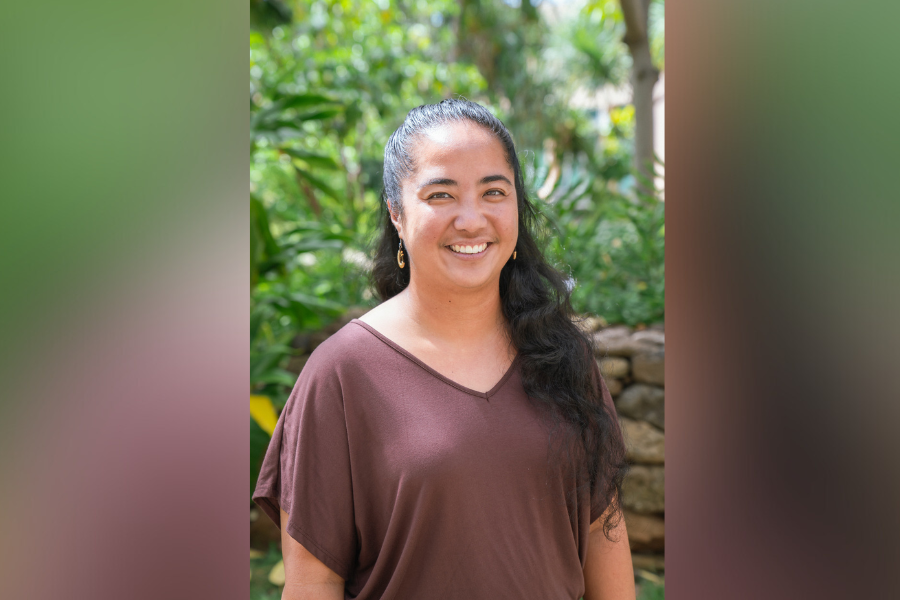
At a time when many health professionals are struggling with burnout, Kanoho Hosoda, PhD, is asking people to get back to the basics and remember kindness.
The concept we all learned in preschool is front and center and the key topic of Dr. Hosoda's study recently published in PLOS ONE.
"We wanted to develop measures of kindness," Hosoda explained. "So when I say 'let's be kind to each other,' we want to really get to the bottom of what that means and offer tangible, specific items that we can use going forward to actually practice kindness."
Dr. Hosoda defines "kindness" as "actions that affirm dignity and social inclusion" and leaned on these ten metrics when conducting the study.
Benefit of Doubt
Autonomous
Apologized to
Understood
Recognized
Included
Treat Fairly
Acknowledged
Safe
Accept Identity
"The theoretical and conceptual foundations of this study are based on this concept of dignity," Hosoda said. We really looked at dignity-affirming actions to combat microaggressions and macroaggressions and how we affirm other people's dignity through these ten items."
Casting a wide net via social media and email, 182 diverse members of higher education responded to the survey, asking them when they felt they gave and received the ten "essential elements of dignity" during their time in higher education.
"The key thing is these ten essential elements of dignity and their functions. 'How do you use it? How do you receive it? How can you get other people within JABSOM, within this academic space, to think along these lines in everything that you do because it'll ideally make this a kinder environment."
Dr. Hosoda started as JABSOM's Native Hawaiian Center of Excellence (NHCOE) Director this year, and she says we're starting from a good place.
"I've seen staff and faculty really promote this safe place for other people and understanding the students," Hosoda said. "Dr. Martina Kamaka, Dr. Dee-Ann Carpenter, and Dr. Vanessa Wong have really promoted that within JABSOM, and looking at how much they do with the Learning Communities and creating that safe place for the students as they progress through this very rigorous curriculum.”
As a PhD, Dr. Hosoda serves as Principal Investigator for a two-year National Institutes of Health K99 Maximizing Opportunities for Scientific and Academic Independent Careers (MOSAIC) grant that examines the Role of Multicultural Identity Integration on Well-Being and Biomedical Career Pathway Persistence. She understands what it's like to navigate higher education.
"Sometimes you feel like you're a lone wolf going through your PhD, but seeing how JABSOM has created these communities is really exciting," Hosoda said. "That's where all of these elements of dignity are being promoted. Seeing how that ultimately affects these medical students as they go on and practice will be interesting in the long run."
The belief and hope is that if students are reminded to hone these skills of kindness in medical school, they will translate to their clinical practice later on.
“Aunty Pilahi Paki defined ALOHA as Akahai (kindness), Lōkahi (unity), ʻOluʻolu (agreeableness), Haʻahaʻa (humility), and Ahonui (patience), all of which are deeply connected to the concept of kindness," Hosoda explained. "Applying these Hawaiian values promotes the broader spirit of aloha, with akahai—kindness—at the forefront. The connection between my research and this definition of ALOHA was serendipitous, and pointed out to me by a kupuna when I told them about my work. This kupuna reminded me that embracing all of these values is essential to creating a positive and transformative atmosphere here in Hawaiʻi.
Hosoda believes the value of kindness should also be instilled in the faculty members who teach our future physicians.
"I would like to redesign the metrics of success," Hosoda said. "I see this as an opportunity for people to self-reflect and see how they're growing in kindness on a quantitative scale to keep up with all of the metrics that we're using nowadays. I would love to see this type of scale used in annual evaluations, promotion and tenure."
Hosoda has big hopes that the practice of kindness will spread throughout JABSOM and the entire state.
"I want to see growth over time from each individual person whether they are a student, faculty, staff, or anybody at JABSOM. I want them to grow in kindness as an individual, within the programs and departments, and then at the school level, too." Hosoda said. "We can also take a broader perspective by considering the long-term impact on society, especially here in Hawai'i. The human connection formed through care and kindness offers a unique kind of healing—one that goes beyond traditional medicine. This social and psychological dimension of kindness fosters a different kind of wellness that medicine alone cannot provide, lifting people to a new level of well-being."